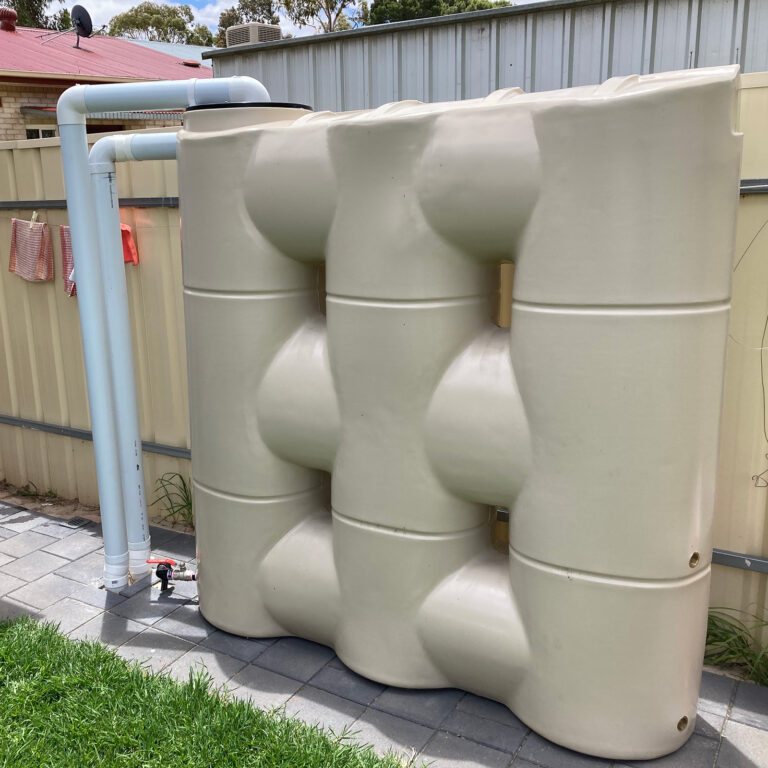Revealing the Perks of Rain Containers in Decreasing Water Expenses and Ecological Impact
In a world where sustainability and cost-efficiency are progressively crucial, the application of rainwater tanks provides a functional and eco conscious option. The advantages of integrating rain containers right into residential or commercial buildings extend beyond mere water bill reductions. By exploring the multifaceted advantages of such systems, one can uncover a wealth of insights into how they add to a more lasting future while favorably influencing both funds and the setting.
Price Financial Savings Via Rain Storage Tanks
When thinking about the application of rainwater tanks, significant cost financial savings can be attained with effective water administration practices. Rain collecting uses a sustainable service that not only lowers water costs however likewise minimizes the pressure on metropolitan water sources. By catching and storing rainwater for various non-potable usages such as watering, toilet flushing, and washing, families and services can considerably decrease their dependence on treated water from the grid, leading to significant expense savings with time.
By using gathered rain for activities that do not require safe and clean water, such as watering yards or washing cars, individuals can reduce their total water intake from the mains supply, resulting in reduced water expenses. In addition, rainwater storage tanks can assist minimize the impact of water restrictions or droughts by supplying a different water source for vital jobs, making certain connection in water supply without incurring excessive costs.

Environmental Impact Decrease
Applying rain tanks not just causes expense savings but additionally adds substantially to minimizing the environmental influence connected with water intake. By catching rainwater that would certainly otherwise run into tornado drains, rainwater containers assist reduce stress on standard water sources like rivers and storage tanks. This lowered need for municipally treated water causes energy financial savings and a reduction in the carbon footprint connected with water treatment and circulation processes.
In addition, utilizing rain for activities such as horticulture, irrigation, and cleaning reduces the demand for using cured water for non-potable purposes. This preservation of potable water aids in protecting water sources for important uses and minimizes the energy-intensive procedures included in dealing with water to meet alcohol consumption standards.

Water Costs Decrease Perks
The setup of rainwater containers uses considerable financial advantages via reductions in water bills. By accumulating and keeping rainwater for numerous family utilizes, such as watering yards, flushing toilets, or doing washing, house owners can considerably lower their dependence on the community water supply. This, subsequently, results in a noticeable decrease in water usage from traditional resources, resulting in reduced water bills at the end of each payment cycle.
Rain is a totally free and lasting resource that can supplement and even change the need for utilizing cured water for non-potable purposes. As an outcome, houses with rainwater containers can see a considerable reduction in their total water expenses in time. In addition, throughout periods of water limitations or dry site web spell, having a rainwater storage tank can provide a beneficial alternative water resource, more decreasing the dependence on expensive local water supplies.
Fundamentally, purchasing a rainwater container not only adds to environmental preservation however also provides substantial economic advantages by reducing water expenses and advertising lasting price financial savings for homeowners.
Sustainable Water Management Solutions
Given the financial benefits and web link reduced dependence on municipal water products that rainwater containers give, discovering lasting water administration options ends up being a rational next step for homeowners looking to optimize their water use. Lasting water administration includes executing practices that efficiently and sensibly make use of water sources while reducing wastage and ecological effect. Rainwater harvesting, which involves accumulating and keeping rainwater for later usage, is a vital element of sustainable water monitoring. By making use of rainwater tanks to record and keep rainwater, home owners can minimize their reliance on traditional water resources, such as local supplies or groundwater, hence adding to water preservation efforts.

In addition to rainwater harvesting, lasting water administration services may consist of applying water-efficient devices, components, and landscaping practices. By taking on these lasting water administration strategies, homeowners can not just enhance their water usage but additionally add to environmental preservation and minimize their water bills in the lengthy run.
Neighborhood Water Resource Preservation

In addition, area participation can encompass the use this link execution of water-saving modern technologies and practices on a larger scale. Motivating the fostering of rain tanks, greywater recycling systems, and efficient irrigation methods within communities can cause significant reductions in water usage. In addition, fostering a feeling of cumulative obligation for water conservation can promote lasting habits and methods among area participants.
Moreover, neighborhood water resource preservation efforts can pave the means for more powerful bonds among homeowners and a common commitment to environmental stewardship. By collaborating to protect and maintain water sources, communities can add substantially to a more lasting and durable future.
Conclusion
To conclude, rainwater tanks use significant price savings, ecological benefits, and add to lasting water management remedies. By minimizing water bills, preserving water resources, and decreasing ecological impact, rainwater tanks play a crucial duty in promoting water preservation and sustainability - Slimline water tanks. Their implementation not just benefits specific households however also adds to the more comprehensive goal of area water resource administration and conservation